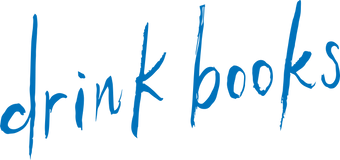
The Shame by Makenna Goodman with Piquenique Big Island Plum
I suppose a certain amount of priming for me to love this month’s novel had already occurred, before I ever picked up Makenna Goodman’s The Shame and began reading it, and then did not stop reading until I was finished, a few hours later, dry-mouthed and sleepless. An author I admire very much had blurbed the cover, a reader I admire had told me to read it, and then another, and then I found myself three hours from home in an Airbnb that I had booked for its cottagey claim of “Tiny House” and promise of chicken-coop and backyard, because I had a deep, almost threatening “longing” to be alone and to think, and, hopefully, to write.
Sometimes when I long for time to be with my thoughts, what I really mean is time to read. A sort of silly longing, as, or at least from the outside, I have a lot of time to read— in fact, I’ve built a whole job around having time to read. It’s a longing, though, for something prolonged, suspended, uninterrupted by other people’s needs, a time where I could “feel alone with my thoughts but also a part of something much bigger”— or at least the bigger Story of the book in hand. The Shame, in addition to being about its namesake feeling, is very much a novel about Storytelling: narrative, and to some extent persona, or character, building, and the value we place, or don’t, on those Stories we create over the reality we live in. Makenna’s novel, for one, builds its own story from “the coursing current of moment stacked upon moment,” and in this way “one thing leads to another until, all of a sudden, you’re somewhere that feels dangerous,” not unlike a crab in a slowly roiling pot, or like snow accumulating on a tender branch. What I mean to say is, the novel caught me off guard. For all the priming that had occurred for me to love this book—and I did, love it—what I love most is its ability to steer me somewhere I was completely unprepared for, and in doing so make me, and my own thoughts, complicit in the story at hand.
I began reading The Shame at 2:30 in the morning while watching the snow fall (the second largest snow accumulation in history in the city where I found myself) from inside a tiny house on a stranger’s bed and finished reading around 5:30 in the morning. I read, quickly, jaw clenched and “saturated with longing” for fruit. Not just any fruit, but “a plum— at first tartness, then through the skin the explosion of sweet”— so much so that “my wanting” created a story of its own nonetheless. Big Island Plum from Piquenique is a sparkling wine made from Italian plums and apples that possess a ‘hot bite on the tongue” and a lingering quality of “wild rose petals and musk.” The story of its making is, perhaps, idyllically beautiful: hand-picked plums and apples from Oak Knoll Farm on San Juan Island, it’s peachy color extracted slowly and gently from whole plums, and then bottled with a bit of remaining juice to allow the natural sugars to create bubbles in the bottle. It’s both a beautiful story of making wine from the fruit and soil in the place they live, and, as this novel will certainly caution you, also one of very real people making their wine in a very real world. The Big Island Plum is juicy, the way a ripe plum brims with juice seconds before dripping down your fingers, but savory too with notes of thyme and tangerines. At only 7% alcohol, it’s a perfect bottle to consume as we recommend consuming this novel: all in one go, if you can, and if you can’t, pop it in the fridge for a slightly less bubbly, but still delicious, drink the following day.
Makenna Goodman is an editor, writer, and author of one novel, The Shame (Milkweed 2020). She also interviews authors I admire, and which I think are worth reading, most recently an interview she conducted with last month’s Book Cru author Vidgis Hjorth called “The Unclassifiable Master.” She lives in Vermont, which is, coincidentally, also where I am from.
Piquenique wines is the San Juan Island based project of Niccolo Coturri & Tess Bryant, two very rad people who care a lot about making expressive wines in a way that cares about the environment. Currently, the Piquenique project is all sparkling wines, made from fruit grown on the San Juan Islands though like any “project” based idea, it will likely shift, and grow to include more grape-based wines as the two are able to grow, and harvest their own grapes in a way that adheres to their careful farming and wine-making practices. All of the work from picking to bottling is done, primarily, by the two of them with the occasional help from friends.
